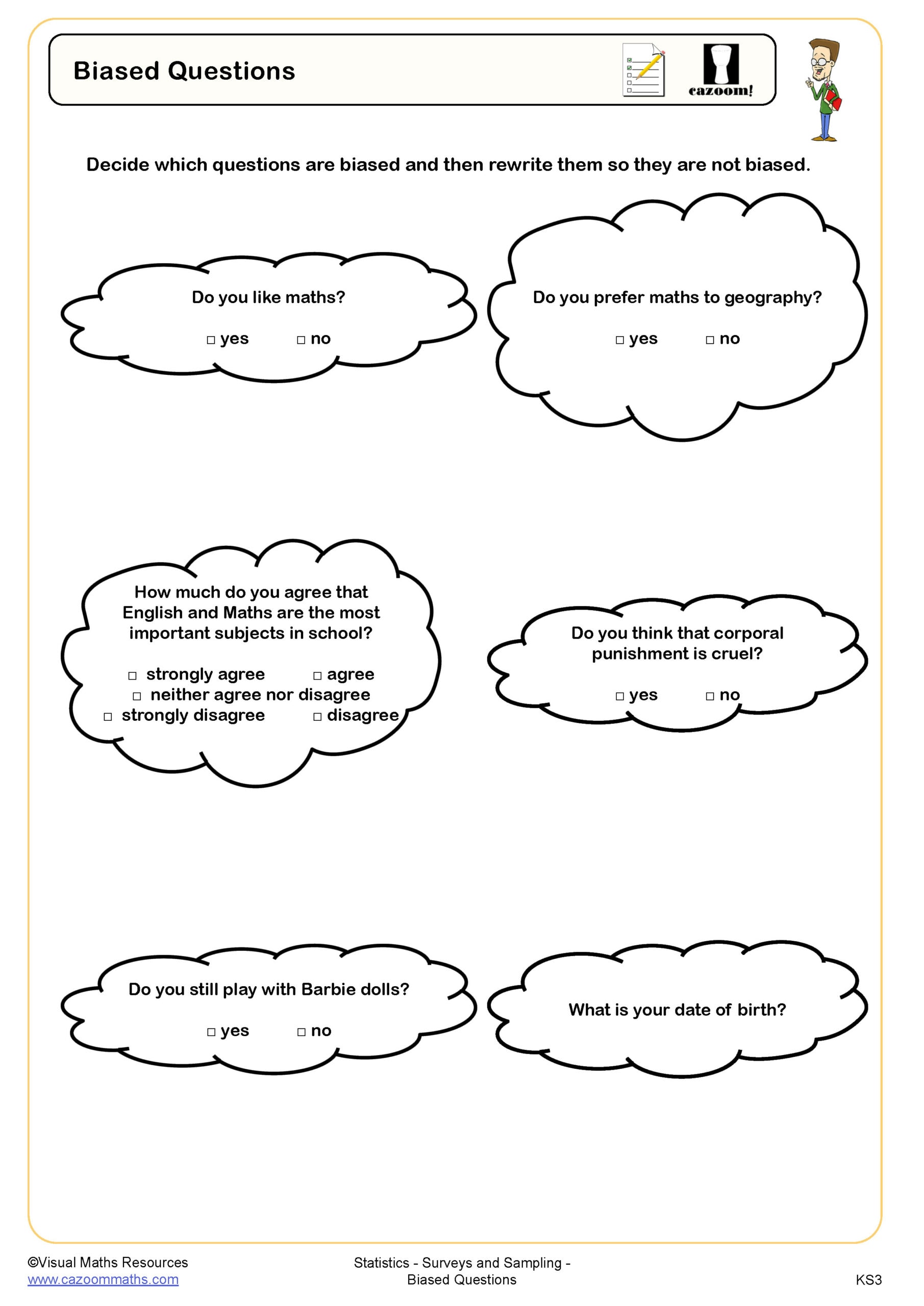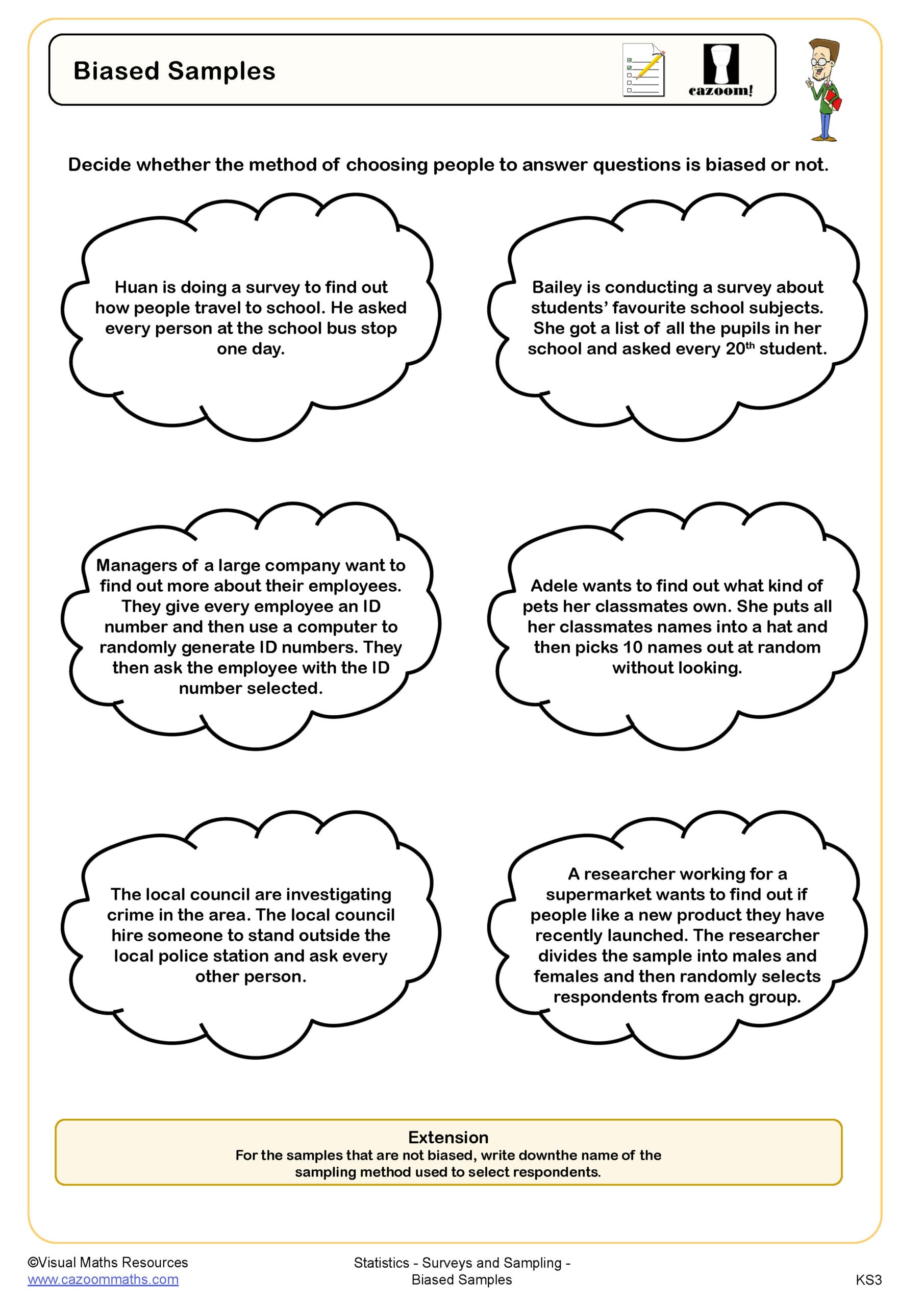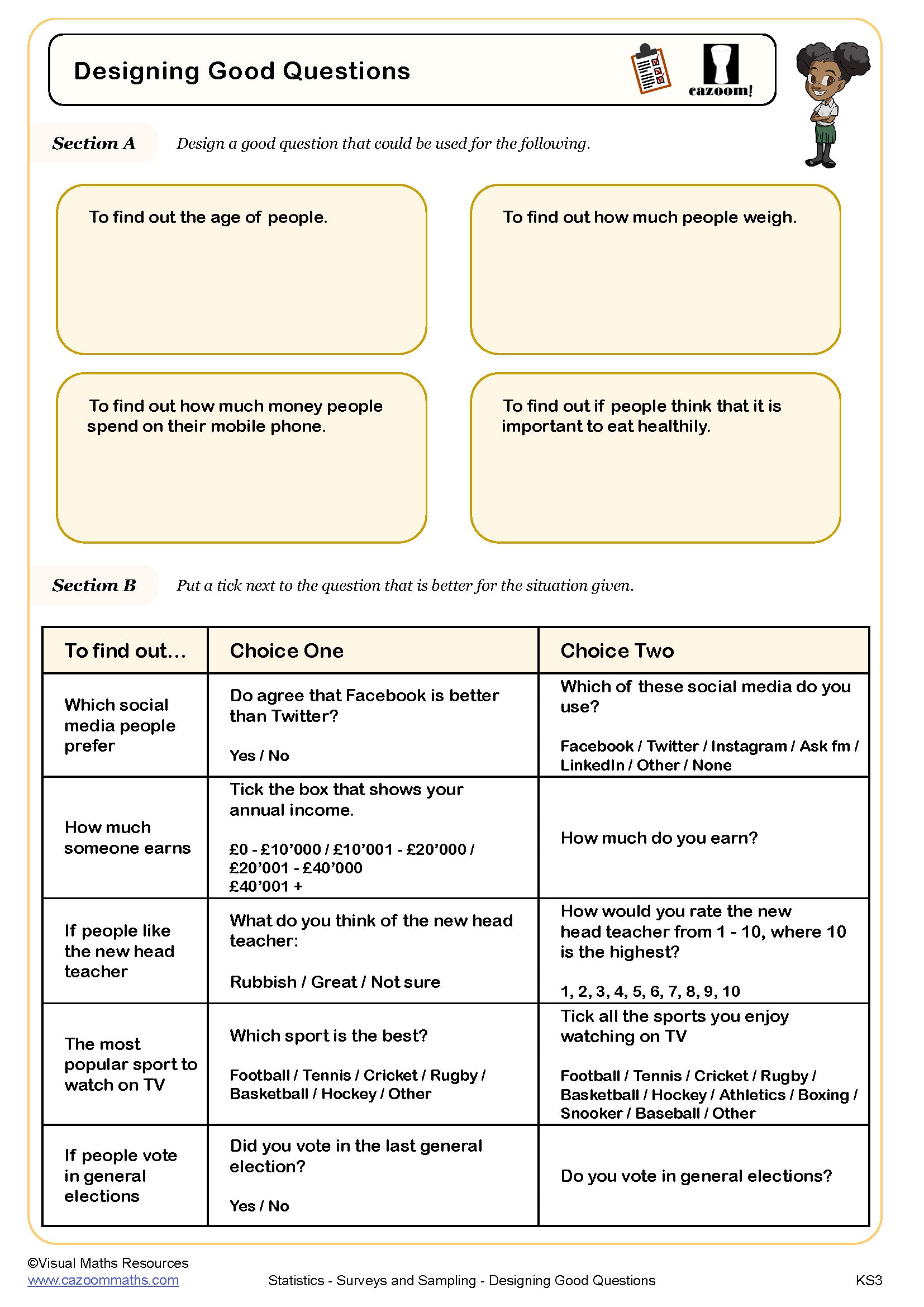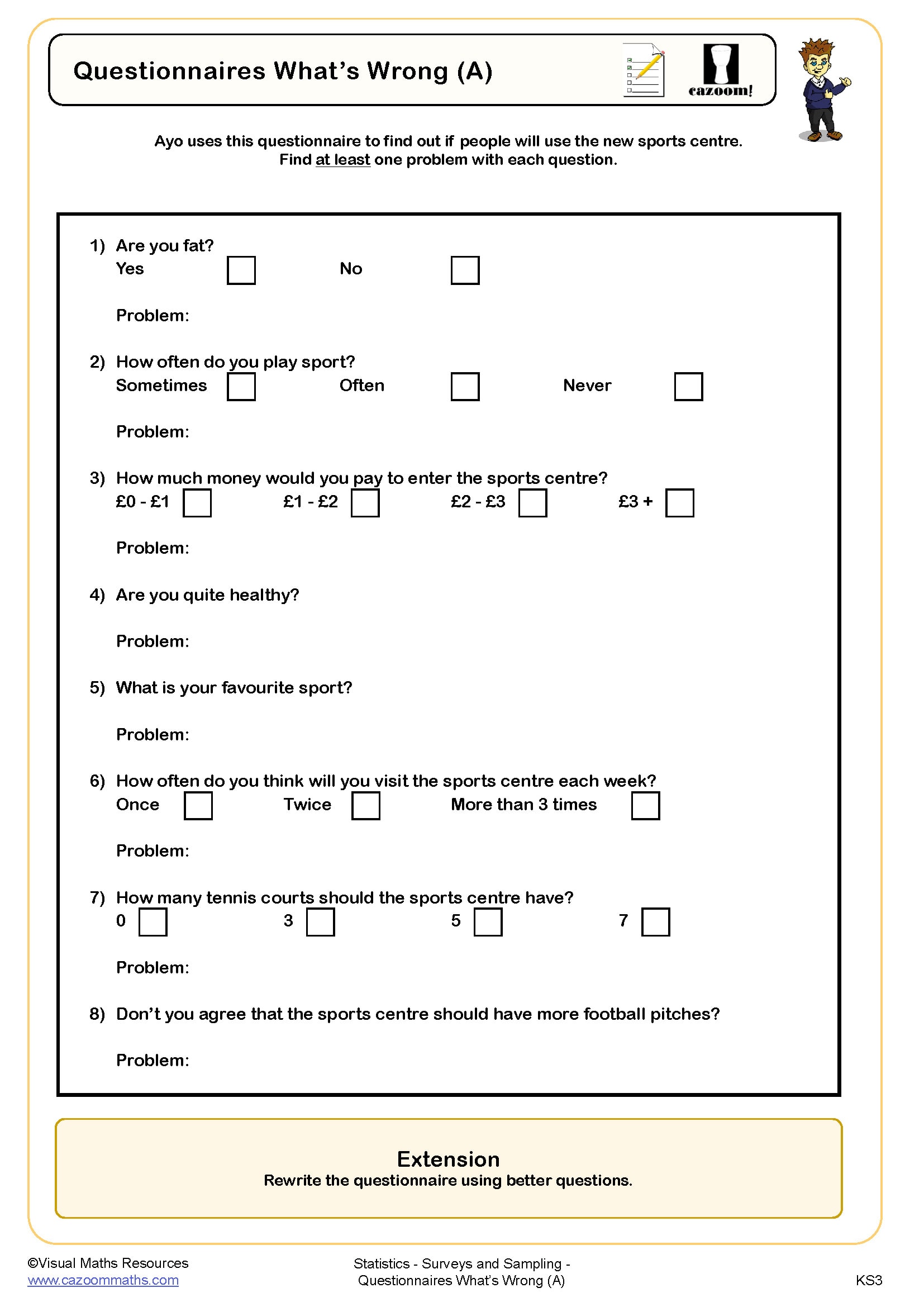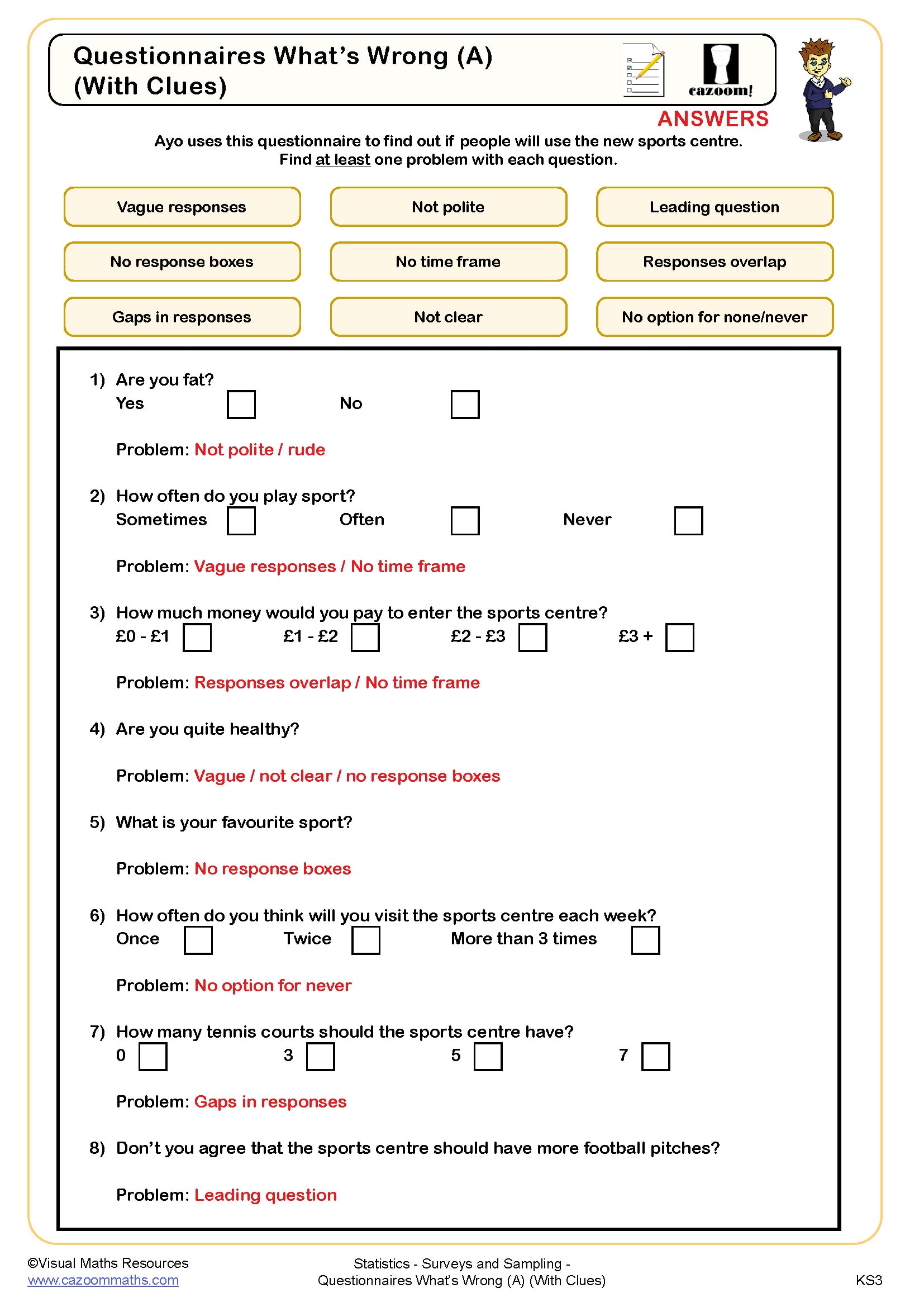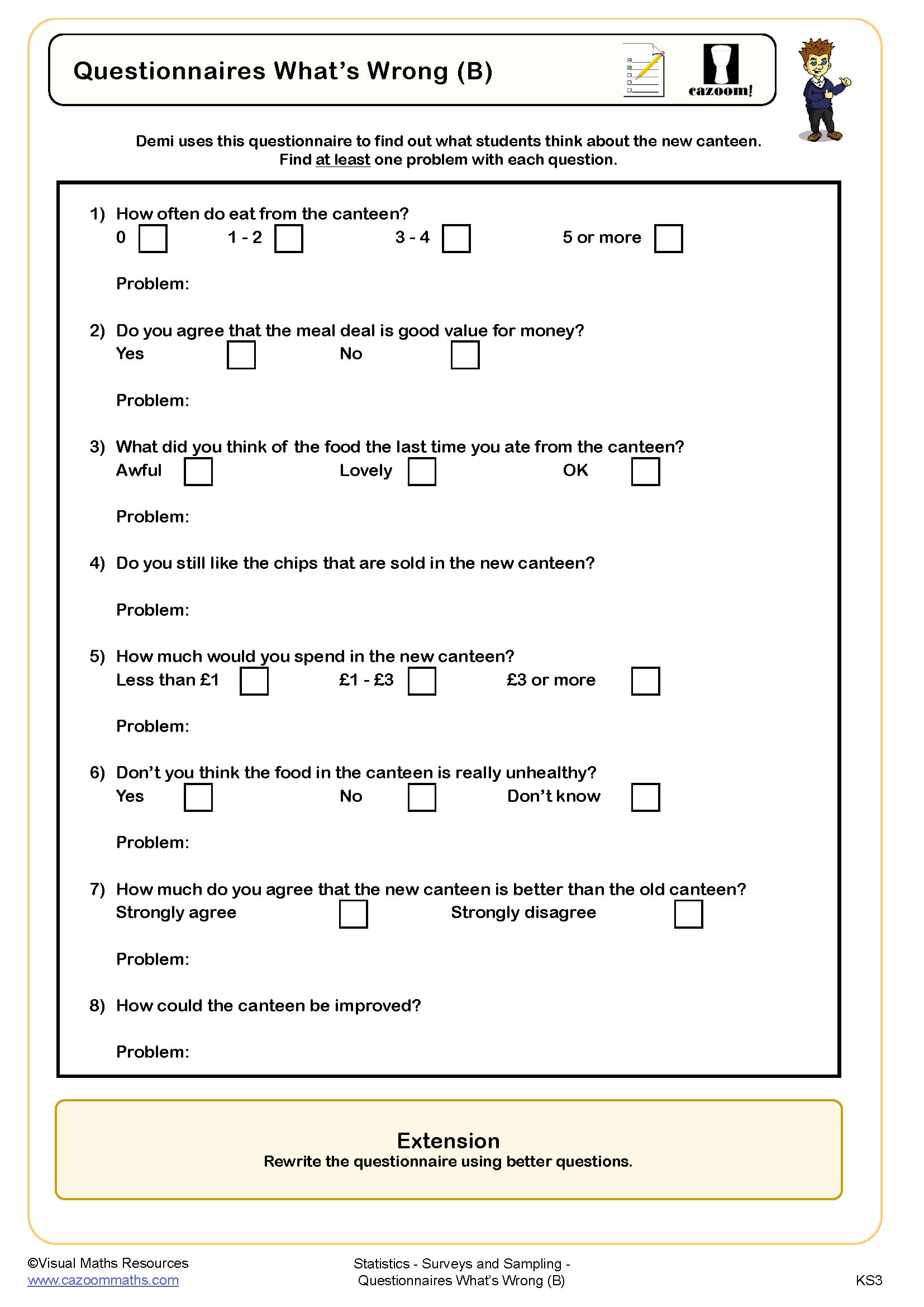Year 8 Surveys and Sampling Worksheets
All worksheets are created by the team of experienced teachers at Cazoom Maths.
The Hidden Benefits of Our Ready-to-use Printable Year 8 Samples and Surveys Worksheets
Moving from Year 7 data handling to Year 8, pupils deepen their understanding of how data is gathered before it is analysed. These resources establish consistent routines for evaluating questions, designing questionnaires, and selecting representative samples. Short, structured tasks keep cognitive load manageable while encouraging clear explanations and reasoning. Because misconceptions often come from poorly phrased questions or biased samples, repeated practice across familiar contexts helps learners spot and correct issues quickly. Over time, students gain the language and judgement needed for fair investigations and school assessments. Specific learning benefits include:
• Develops fluency with identifying leading and ambiguous questions
• Builds strategies for choosing representative samples
• Strengthens reasoning about sample size and variability
• Encourages clear justifications using statistical vocabulary
• Prepares students for end-of-year KS3 assessments
• Creates effective homework routines with short, focused tasks
• Supports targeted intervention and catch-up sessions
From Questionnaires to Samples: KS3 Worksheet Topic Overview
The sequence progresses from concrete scenarios (school clubs, lunch choices, travel surveys) to pictorial prompts that highlight errors, and finally to abstract reasoning where pupils rewrite questions and defend sampling methods. Worked solutions are included, showing why each correction improves fairness and how to articulate better choices.
The worksheets in this collection include:
• Biased Questions — Identify leading wording and propose clear, neutral alternatives.
• Designing Good Questions — Practise closed, open, and scaled responses with fair phrasing.
• Questionnaires What’s Wrong (A) — Spot double-barrelled items, missing options, and layout issues.
• Questionnaires What’s Wrong (A) (With Clues) — Use hints to diagnose problems and refine questions.
• Questionnaires What’s Wrong (B) — Analyse new contexts with trickier biases and improved revisions.
• Biased Samples — Evaluate representativeness and suggest better sampling strategies.
Achieve Better Accuracy With Cazoom Maths Year 8 Samples and Surveys Worksheets
In busy classrooms, you need materials that work the first time. Each page is purpose-built for quick starts, clear modelling, and independent practice. Differentiation is embedded: initial items focus on recognition. The initial tasks involve rewriting questions and justifying sampling choices which are suitable for depth and stretch, while later tasks require these activities. Students in mixed-attainment groups can participate in the same lesson through different starting points because the lesson contains both accessible and challenging elements. The full answer sheets with worked reasoning enable teachers to see the reasoning behind the improvements, which helps in planning and provides consistent feedback. These resources work well with short starters and longer skills lessons and targeted interventions, and fit into schemes of work and homework cycles. With consistent language and structure across the set, pupils build a secure approach they can apply in wider statistics topics from Year 8 onwards with Cazoom Maths.
From Quality-Control to Research: Real-Life Uses for Year 8 Sampling and Survey Skills
Sound sampling and fair questions underpin everyday decisions, from school councils to national surveys. Pupils see immediate relevance and transfer the habits of fairness and clarity beyond maths.
• Designing a canteen feedback form that captures all pupils’ views
• Polling classmates for a school event without over-representing one group
• Estimating community preferences on transport or recycling schemes
• Quality-control sampling in manufacturing or food safety checks
• Health surveys assessing activity levels, diet, or screen time habits
• Market research for a student enterprise or charity fundraiser
• Fieldwork in geography or science using unbiased sampling methods
